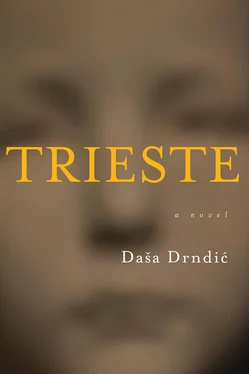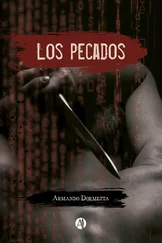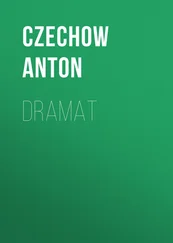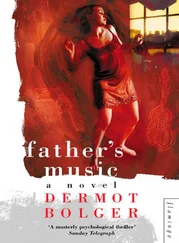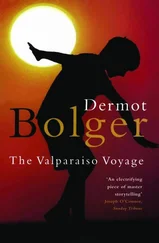Milan is mainly “cleansed” by March 1944, and the Tedeschi family are not under suspicion, because had they been suspicious they wouldn’t have been living in the house where they were living, in a flat whose previous tenants had gone off for a “long trip abroad”, as Florian’s contact had put it.
At San Vittore prison there are empty beds. At platform twenty-one of the main train station there are fewer freight cars waiting to be loaded. The trains are loaded at night, quickly, and in secret . The Tedeschi family know nothing about the morning of 30 January when six hundred people are pushed into a long train, including some forty children, big and small, and older people of whom the eldest is Smeralda Dina, 88, like Emma Luzzatto from Gorizia. Seven days later, on 6 February, the train arrives at Auschwitz-Birkenau and the Meister aus Deutschland calls out
… thrust deeper into the earth some of you the rest of you sing and play
… thrust deeper with your spades some of you the rest of you play on for the dance
… play your violins more darkly then you’ll rise like smoke into the air then you’ll have a grave in the clouds where there is plenty of room
and in only a few hours five hundred travellers fly off to their heavenly cemetery.
At a 1969 meeting in Zurich of secondary school mathematicians from Italy, Switzerland and Austria, Haya Tedeschi meets Elvira Weiner from Zurich. At the meeting there is talk not only of mathematics, but also of the past. There is always talk of the past, so that people can get to know each other better. That is how it goes. Conversations about the past are like little confessions, like unburdenings, after which the soul returns to the present on angel wings, fluttery and luminous.
This street is nice, but I don’t like train stations; there have been terrible train stations , Haya Tedeschi says to Elvira Weiner during a free afternoon when they go for a walk, window-shopping along Bahnhofstrasse.
Yes there have, says Elvira Weiner, let’s go and have a snack of something sweet, she adds. I was sixteen, says Elvira Weiner, and at home there was a lot of talk about trains, about coal coming from Germany through Switzerland, through the St Gotthard tunnel to Italy, and this was discussed in our family. There was a lot of talk, though more of it was a whisper, it was like an open secret — everybody knew. One day my mother said, There was a request made of the Swiss government to allow trains through Gotthard with people on them, but towards Germany, my mother told me, says Elvira Weiner, and my mother also said, They asked me, this committee, if I wanted to help, because they say there are people coming. We don’t know who those people are or where they are going, my mother said , says Elvira Weiner, but actually, that wasn’t the way it was, says Elvira Weiner. She knew. She knew who those people were. Come on, join us, this is a humanitarian effort, the trains will stop in Zurich and then we will distribute blankets and coffee and soup, they told me in this committee, my mother said, says Elvira Weiner. We thought, this is just a made-up story, we didn’t believe it, in 1944 I was sixteen, but there was more talk. And then finally my mother at one point came home and said to my father, I have volunteered, and I’m going to go and help, she said, says Elvira Weiner, and my father was against it, why get involved? he asked my mother, but she said, I feel I have to do this, I must , says Elvira Weiner, then later we heard that this was a deal, that the German and Swiss governments had made a deal, and the Swiss Red Cross got involved, their deal was that the trains could pass through Gotthard and not through the Brenner, since otherwise trains went through the Brenner, but the Brenner Pass was closed because of the snow and they couldn’t ship anybody through the Pass. Italians and Gypsies — yes, Gypsies too, who they were transporting through Germany and beyond, somewhere beyond, so the Germans had suggested using these empty coal carriages to ship them back with people, so they wouldn’t return empty and the Swiss Red Cross at that point intervened, and they negotiated a deal whereby these railway carriages would stop at night in Zurich, and they said, Fine, we agree, at night, the Swiss Red Cross said, and our people will give the travellers blankets and warm coffee and warm soup, so they can travel in greater comfort, the Swiss Red Cross said, says Elvira Weiner. Mama went around town and asked people to contribute their coffee, because coffee was rationed, and also she asked everybody if they could donate some beans. Beans were not rationed, but still, you couldn’t get them so freely, says Elvira Weiner. And these beans were used to make soup with a few carrots and potatoes, I suppose — yes, and potatoes. So we went around doing this, and then, another night, my mother said we were going to a meeting and I went along. It was somewhere in, I believe, a school building, I no longer remember which school, and at the meeting we got instructions about what to do when the trains arrived. And there was a Red Cross official, a lady, who told us the trains would come in at night, and we were supposed to bring torches, we were definitely supposed to bring torches, she said. We would be in teams of four, she said, and we would be stationed at certain marked spots along the platform, the lady from the Swiss Red Cross said, says Elvira Weiner, and we would have to bring all the goods — the blankets and the coffee and the beans the day before to the spot where they would be collected, the lady from the Swiss Red Cross said, says Elvira Weiner. I don’t remember where the collection point was, says Elvira Weiner, and we were also supposed to bring our gas masks, which I didn’t at all understand at that time, why we had to take our gas masks, says Elvira Weiner. Now everybody had a gas mask at that time. Every building had so many gas masks, but we never used them. Switzerland was neutral. So my mother did everything as the lady from the Swiss Red Cross said: she took all the coffee and all the blankets and all the soup in, and then the day came. We had no car and at that time there were constant blackouts so we took the tram and we had our gas masks, and we had also been told we would have to make a chain. Then we will bring you cauldrons of soup and big pots of coffee and you will ladle out the soup into smaller containers and you will hand them down from one person to the other, they said from the Swiss Red Cross, and there would be one person who would be stationed right next to the railway carriages, they said, says Elvira Weiner. So we arrived. It was about, I think, nine o’clock at night and we were four in our team — my aunt, my mother, the housekeeper and myself — and my mother was the one who stood next to the railway carriage. And I think there were maybe ten teams like ours and we were placed at intervals along the platform, and we waited. And when everything was done and when everybody was waiting, they brought out the huge containers of hot soup — I don’t know where they made it. Yes, I do know, at the Jewish community house. I am not certain, but I think my aunt told me the soup was made there. And then they brought vats of coffee. And my job was the soup. I had to ladle the soup into smaller containers — not plates, gamellas they called them. Metal ones. And so we waited, says Elvira Weiner, and then we saw them, the train carriages coming into the station, very slowly, and then they stopped. And somebody from the outside opened the door, because they were sealed shut somehow, the carriages, someone took off the bar and then unlocked the door and then the door slid open and we all were standing there, waiting, and a man came out and he stood and stood there; then he nodded that we could start and then I began ladling the soup. I remember it was very difficult, because I had put the torch on the ground, and the soup was hot, pretty hot. I had to ladle it and then I gave it to the housekeeper, her name was Ida, Ida Ban, and Ida would hand the soup to my aunt and my aunt to my mother and she to this man and the man turned around, and handed the gamella to someone in the carriage, because the gamella disappeared, that means that there were people in the train. And this went on for about half an hour, and the atmosphere was very tense, and we were told not to talk, absolutely not to whistle, not to do anything, it was a very tense situation, very, and I also remember I thought, What would happen if now all these people came tumbling out of the railway carriages? And I was trying to imagine, what it was like in these railway carriages? Did they have beds? Or chairs? Was there a stove in these railway carriages? It was very cold, very raw weather. And I was wondering, If they do come out, what are we supposed to do? Are we supposed to push them back in? Or would we keep them here in Zurich and maybe bring them home and I would share my bed with one of them, with a little girl or a young woman my age? Because my mother had brought home Jews, refugees who were living in camps, she often invited them at weekends. And I always had to share my room with them, so I thought maybe I’d have to share my room again, only now for a longer time. But nothing happened. When we had emptied the containers , says Elvira Weiner, when the soup was finished and the coffee was done, and the blankets were distributed, we went home, the same way we’d come, by tram. We had to keep to a certain time to catch the last night tram .
Читать дальше
